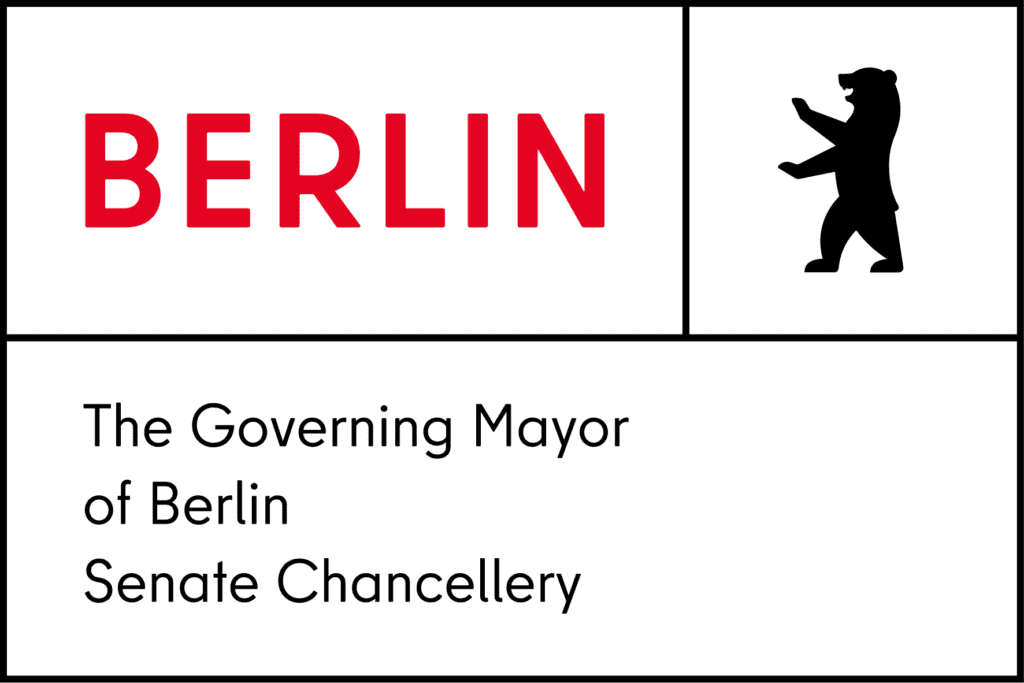Background
Air quality, traffic warnings, or digital services – many aspects of urban daily life are based on data. However, these data are often scattered: in different formats, across various departments, and rarely compatible. This is exactly where the Data Hub Berlin comes in.
Since February 2025, the Technologiestiftung Berlin has been building the prototype for a central data platform for the city, on behalf of the Berlin Senate Chancellery. The goal is to make administrative data easier to use – for administration staff, but also for research and urban development.
Project Goal
Many administrative data projects have so far failed because the necessary expertise and resources to operate them long-term are lacking. External service providers are often hired, which not only costs time and money but also complicates the development of internal capabilities. The Data Hub Berlin aims to enable the administration to create, operate, and further develop its own data products – from updating datasets to adjusting dashboards and maps. An integrated rights and role system ensures that access and responsibilities are clearly defined.
To make this work, more than just technology is needed: the Data Hub Berlin aims to bring together existing open-source components while creating the conditions to sustainably build structures, processes, and knowledge within the administration. Step by step, this will create the foundation for a data-literate, competent administration.
Approach
Many cities are currently working on urban data platforms to better utilize the growing volume of municipal data – from geographic information and real-time sensor data to open administrative data. The goal is always the same: to make data discoverable, systematically consolidate it, avoid redundant work, and protect sensitive information.
The Data Hub Berlin follows this approach but consciously opts for open, modular structures. Based on proven open-source components, a platform is being created that can be adapted to the specific needs of the Berlin administration. Three key challenges are at the center of focus:
• Data Management: Administrative data should be managed in a structured way via standardized interfaces (APIs) and be easier to exchange between systems, even across existing infrastructures.
• ETL Processes & Data Pipelines: When data from different sources is consolidated, automatic conversion and unification is required. The Data Hub provides tools to efficiently handle these processes (Extract – Transform – Load).
• Visualizations & Maps: Data should not only be stored but also made visible and understandable. Through dashboards and map applications, information can be processed in a way that helps in everyday administration and is also accessible to the public.
In this way, the Data Hub Berlin lays the foundation for a data-driven administration that can independently manage and meaningfully develop its information.
What’s Next?
Since the funding began in February 2025, work has been underway to build the Data Hub Berlin. The current focus is on the technical development of the platform together with a service provider – aiming to create a reliable and future-proof infrastructure.
At the same time, concrete use cases are being identified and implemented together with four initial pilot administrations to test the platform under real-world conditions. In this way, not only will first projects be realized in the Data Hub, such as a city-wide solution for displaying Berlin district profiles or building a new data pipeline for collecting city-relevant data about social actors in neighborhoods, but insights into potentials, limitations, and further development needs will also be gained, always with a focus on the actual needs within the administration.
Additionally, a landing page and a digital knowledge library are being developed to make results, experiences, and foundational knowledge accessible in the long term. A sustainable governance model is also being worked on, with the goal of permanently anchoring the Data Hub Berlin within the administration as a central infrastructure for the competent and responsible management of urban data.
Team
The Data Hub Berlin is operated by the Technologiestiftung Berlin and is part of the project “Building an Urban Data Platform and Implementing Use Cases in the State of Berlin,” funded by the Berlin Senate Chancellery.
Contact
Lisa Stubert (lisa.stubert@ts.berlin)
